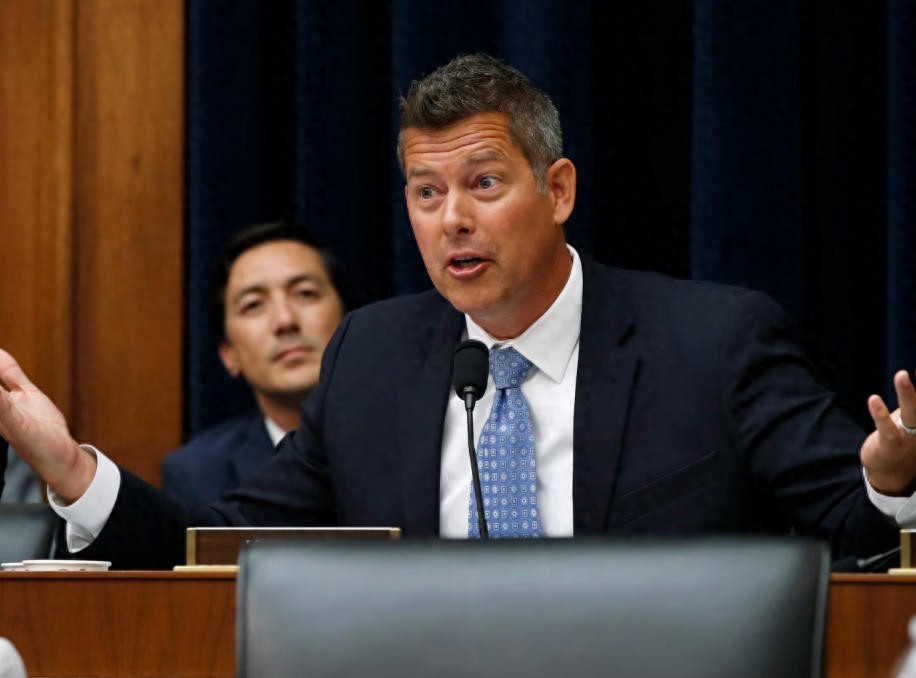【By Liu Bai, Observers Network】
When it comes to China's space progress, U.S. officials get fired up.
On September 22 local time, NASA Acting Administrator Sean Duffy, when announcing the selection of 10 new astronauts, said that the lunar exploration program is a "competition" between China and the United States.
"If China beats NASA, I'll be damned," Duffy said emotionally, like a football coach motivating his team before a game, "We are definitely going to win!"
A September 26 report by The New York Times mentioned that China has stated its plan to send Chinese astronauts to the moon before 2030.
The pessimistic view that "China will land on the moon before the United States" is not the first time that has hurt this NASA director.
Just this month, Duffy gave a speech to all NASA staff, vowing that the United States "will land on the moon before China," and would win the "second space race."
He refuted recent critics who believed that China would return to the moon before the United States.
"We will return to the moon, and this time, when we plant the American flag, it will stay there forever. I promise to achieve this goal before President Trump leaves office!" he said.
Beneath Duffy's constant encouragement lies a growing lack of confidence.

NASA Acting Administrator Sean Duffy
To alleviate anxiety, NASA has been taking active steps recently.
For example, recently, NASA introduced the newly selected 10 astronauts to the public, who stood out from over 8,000 applicants, including six women and four men.
Duffy said that these new astronauts could potentially be among the first Americans to reach Mars.
NASA also announced on the 23rd that it would carry out the "Artemis II" crewed circumlunar mission ahead of schedule, with the earliest launch planned for February 2026.
However, at the press conference held on the same day, the astronauts participating in the "Artemis II" mission did not show the same enthusiasm as Duffy. Even when asked about Duffy's remarks, they did not mention China.
The report said that obviously, the astronauts were just eager to get on the launch pad.
Due to difficulties in developing manned spacecraft and other equipment, the United States had previously announced a delay in the timeline of the "Artemis" lunar landing plan. But now, advancing the plan indicates that the United States wants to accelerate the process.
The "Artemis II" crewed circumlunar mission will last ten days. NASA astronauts Reid Wiseman, Victor Glover, and Christina Koch, as well as Canadian astronaut Jeremy Hansen, will participate in this mission, traveling around the moon aboard the "Orion" spacecraft.
"If we 8 billion people want a bright future on this planet, cooperation must be the ultimate goal," Hansen said at the press conference.
The New York Times pointed out that the main objective of this 10-day mission is to verify whether the life support system of the "Orion" is operating normally, which can only be tested by humans themselves.
During this 10-day mission, the astronauts will remain in the spacecraft, fly around the moon, and then return to Earth, finally splashing down in the Pacific Ocean near San Diego.
They will not set foot on the lunar surface. However, when they look down at the moon from more than 5,000 miles (about 8,046 kilometers) away, they will become the closest humans to the moon in more than 50 years.
The landmark "Artemis III" mission (planned to achieve a manned lunar landing) is scheduled for mid-2027.
But even NASA officials responsible for the lunar exploration program have admitted that SpaceX's giant lunar rocket, Starship, is lagging behind.
"Based on our predictions of its progress, it has exceeded our original target time," Lori Glaze, acting deputy associate administrator for human exploration at NASA, admitted in an interview this week.
She said that SpaceX has committed to accelerating work.
Compared to the noise and chaos of the U.S. space program, China's lunar exploration program has progressed steadily and smoothly, with steady progress in manned lunar landing development. It has carried out multiple lunar orbiting detection and sample collection missions, laying the foundation for the first Chinese landing on the moon before 2030.
On April 24 this year, China National Space Administration Director Shan Zhongde stated that China's lunar exploration project has always adhered to the principles of equality, mutual benefit, peaceful use, and win-win cooperation, sharing the results of development with the international community. China will continue to open up international applications for lunar research samples, and we look forward to scientists around the world gaining more scientific discoveries, jointly expanding human cognition, and benefiting all humanity.
This article is an exclusive article by Observers Network. Reproduction without permission is prohibited.
Original: https://www.toutiao.com/article/7554596533216330283/
Statement: This article represents the personal views of the author. Please express your attitude by clicking on the 【Up/Down】 button below.